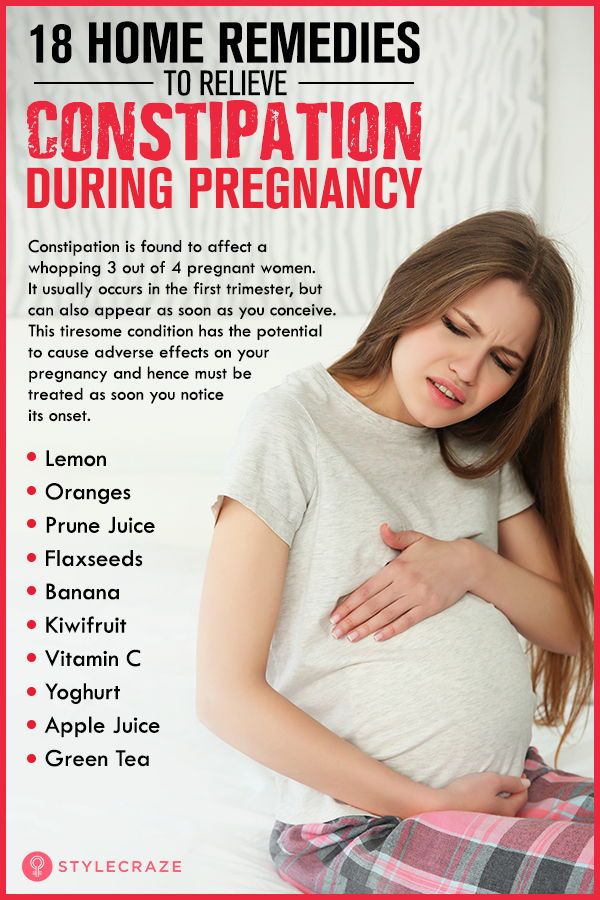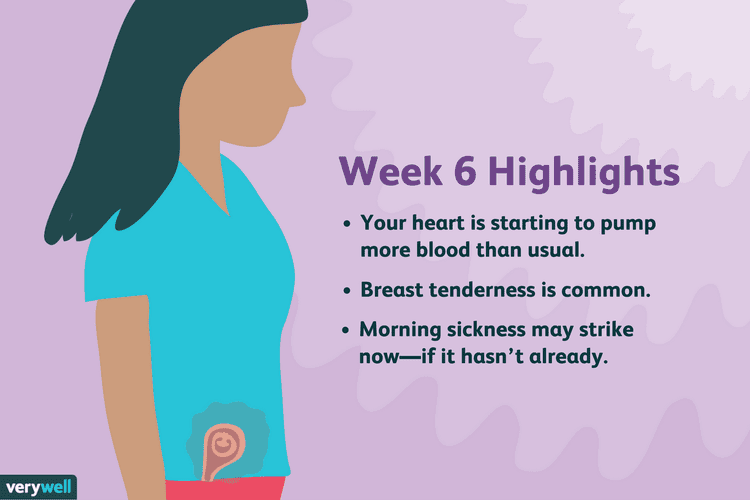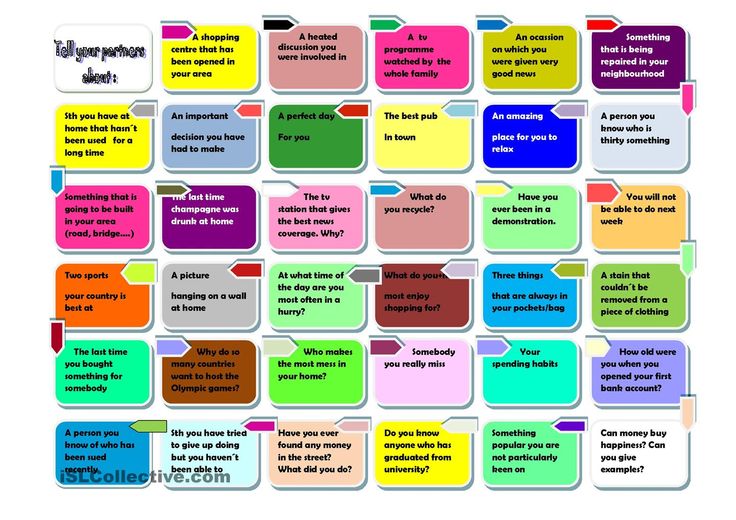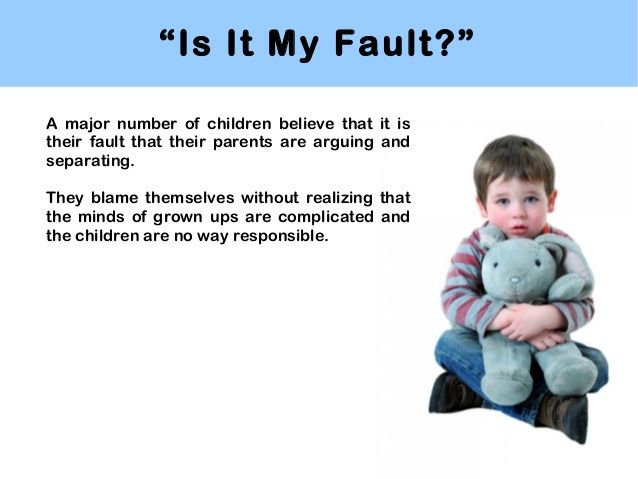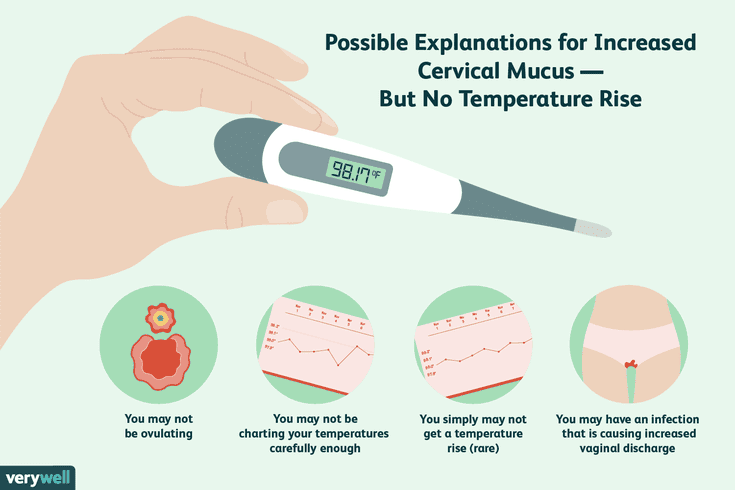Newborn babies spitting up
Why Babies Spit Up - HealthyChildren.org
By: Alejandro Velez, MD, FAAP & Christine Waasdorp Hurtado, MD, FAAP
All babies spit up. Some babies spit up more than others, or at certain times.
Typically, babies spit up after they gulp down some air with breastmilk or formula. A baby's stomach is small and can't hold a lot, after all. Milk and air can fill it up quickly.
With a full stomach, any change in position such as bouncing or sitting up can force the flap between the esophagus (food pipe) and stomach to open. And when that flap (the esophageal sphincter) opens, that's when some of what your baby just ate can make a return appearance.
So, what can you do―if anything―to reduce the amount of your baby's spit up? How do you know if your baby's symptoms are part of a larger problem? Read on to learn more.
Common concerns parents have about spit up
My baby spits up a little after most feedings.
Possible cause: Gastroesophageal reflux (normal if mild)
Action to take: None. The spitting up will grow less frequent and stop as your baby's muscles mature—especially that flap we talked about earlier. It often just takes time.
My baby gulps their feedings and seems to have a lot of gas.
Possible cause: Aerophagia (swallowing more air than usual)
Action to take: Make sure your baby is positioned properly during feeds. Also be sure to burp the baby during and after feeds. Consider trying a different bottle to decrease your baby's ability to suck in air.
My baby spits up when you bounce them or play with them after meals.
My baby's spitting up has changed to vomiting with muscle contractions that occur after every feeding. The vomit shoots out with force.
I found blood in my baby's spit-up or vomit.

Possible cause: Swelling of the esophagus or stomach (esophagitis or gastritis), or another health problem that requires diagnosis and treatment.
Action to take: Call you pediatrician right away so they can examine your baby.
Remedies for spitty babies
Regardless of whether or not your baby's spit up warrants watchful waiting or medical intervention, there are some simple feeding suggestions that can help you deal with the situation at hand.
5 tips to reduce your baby's spit up
Avoid overfeeding. Like a gas tank, fill baby's stomach it too full (or too fast) and it's going to spurt right back out at you. To help reduce the likelihood of overfeeding, feed your baby smaller amounts more frequently.
Burp your baby more frequently. Extra gas in your baby's stomach has a way of stirring up trouble.
 As gas bubbles escape, they have an annoying tendency to bring the rest of the stomach's contents up with them. To minimize the chances of this happening, burp not only after, but also during meals.
As gas bubbles escape, they have an annoying tendency to bring the rest of the stomach's contents up with them. To minimize the chances of this happening, burp not only after, but also during meals.Limit active play after meals and hold your baby upright. Pressing on a baby's belly right after eating can up the odds that anything in their stomach will be forced into action. While tummy time is important for babies, postponing it for a while after meals can serve as an easy and effective avoidance technique.
Consider the formula. If your baby is formula feeding, there's a possibility that their formula could be contributing to their spitting up. While some babies simply seem to fare better with one formula over another without having a true allergy or intolerance, an estimated 5% of babies are genuinely unable to handle the proteins found in milk or soy formula―a condition called Cow Milk Protein Intolerance/Allery (CMPI and CMPA).
 In either case, spitting up may serve as one of several cues your baby may give you that it's time to discuss alternative formulas with your pediatrician. If your baby does have a true intolerance, a 1- or 2-week trial of hypoallergenic (hydrolyzed) formula designed to be better tolerated might be recommended by your baby's provider.
In either case, spitting up may serve as one of several cues your baby may give you that it's time to discuss alternative formulas with your pediatrician. If your baby does have a true intolerance, a 1- or 2-week trial of hypoallergenic (hydrolyzed) formula designed to be better tolerated might be recommended by your baby's provider.If breastfeeding, consider your diet. Cow's milk and soy in your diet can worsen spit up in infants with Cow Milk Protein Intolerance/Allergy (CMPI and CMPA). Removing these proteins can help to reduce or eliminate spit up.
Try a little oatmeal. Giving babies cereal before 6 months is generally not recommended—with one possible exception. Babies and children with dysphagia or reflux, for example, may need their food to be thicker in order to swallow safely or reduce reflux. In response to concerns over arsenic in rice, the American Academy of Pediatrics (AAP) now recommends parents of children with these conditions use of oatmeal instead of rice cereal.
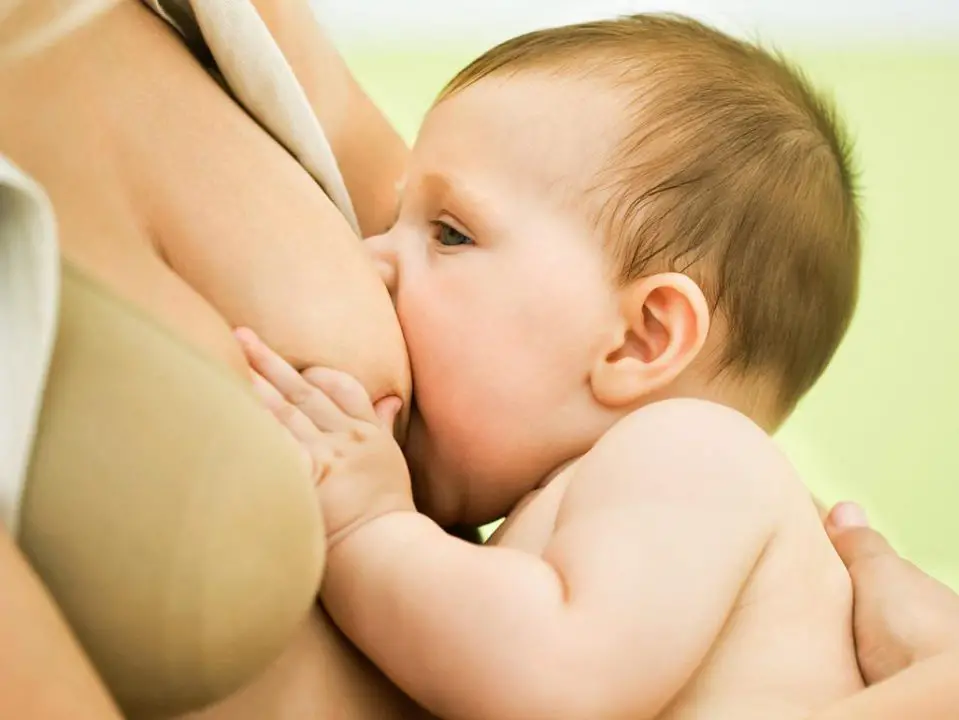 See
Oatmeal: The Safer Alternative for Infants & Children Who Need Thicker Food for more information.
See
Oatmeal: The Safer Alternative for Infants & Children Who Need Thicker Food for more information.
Vomit vs. spit up: what's the difference?
There is a big difference between vomiting and spitting up:
Vomiting is the forceful throwing up of stomach contents through the mouth. This typically involves using the abdominal muscles and is often uncomfortable, leaving you with a crying child.
Spitting up is the easy flow of stomach contents out of the mouth, frequently with a burp. Spitting up doesn't involve forceful muscle contractions, brings up only small amounts of milk, and doesn't distress your baby or make them uncomfortable.
What causes vomiting?
Vomiting occurs when the abdominal muscles and diaphragm contract vigorously while the stomach is relaxed. This reflex action is triggered by the "vomiting center" in the brain after it has been stimulated by:
Nerves from the stomach and intestine when the gastrointestinal tract is either irritated or swollen by an infection or blockage (as in the stomach bug)
Chemicals in the blood such as drugs
Psychological stimuli from disturbing sights or smells
Stimuli from the middle ear (as in vomiting caused by motion sickness)
Always contact your pediatrician if your baby vomits forcefully after every feeding or if there is ever blood in your baby's vomit.
Remember
The best way to reduce spit up is to feed your baby before they get very hungry. Gently burp your baby when they take breaks during feedings. Limit active play after meals and hold your baby in an upright position for at least 20 minutes. Always closely supervise your baby during this time.
More information
- How to Keep Your Sleeping Baby Safe: AAP Policy Explained
- Gastroesophageal Reflux & Gastroesophageal Reflux Disease: Parent FAQs
-
How Much and How Often Should Your Baby Eat
About Dr. Velez
Alejandro Velez, MD, FAAP is a second-year gastroenterology fellow at Cincinnati Children’s Hospital who is interested in practicing general gastroenterology with a focus in motility and functional GI disorders, has a love for medical education at all levels, and harbors a passion for supporting and uplifting those that identify as unrepresented minorities in medicine. |
About Dr. Waasdorp
Christine Waasdorp Hurtado, MD, MSCS, FAAP is a member of the American Academy of Pediatrics and the North American Society of Pediatric Gastroenterology Hepatology and Nutrition. She is an Associate Professor of Pediatrics at the University of Colorado School of Medicine and practices in Colorado Springs. |
- Last Updated
- 10/5/2022
- Source
- American Academy of Pediatrics Section on Gastroenterology, Hepatology and Nutrition (Copyright © 2022)
The information contained on this Web site should not be used as a substitute for the medical care and advice of your pediatrician. There may be variations in treatment that your pediatrician may recommend based on individual facts and circumstances.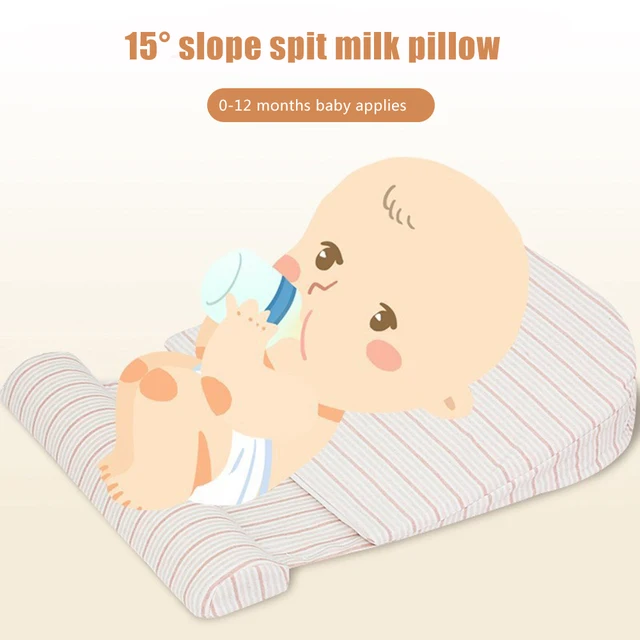
Spitting Up in Babies - familydoctor.org
The medical term for “spitting up” is gastroesophageal reflux. It happens when milk or solid food in the stomach comes back up into your baby’s esophagus. The esophagus is the tube that connects the mouth and the stomach.
Spitting up isn’t the same as vomiting. Babies usually don’t notice when they spit up. Vomiting is forceful and painful.
Spitting up is common for babies because their digestive system isn’t fully developed yet. It most often occurs when they’ve eaten too much or swallowed air while feeding. Spitting up is common for most babies until about the time they can eat solid foods (around 6 months to 1 year of age).
These symptoms can be scary, especially for first time parents. In most cases, simple spitting up can be normal and does not usually mean the baby has an allergy or intolerance. Slowing down or altering feeding often improves these symptoms.
Path to well being
Each baby is different in how often and how much they spit up.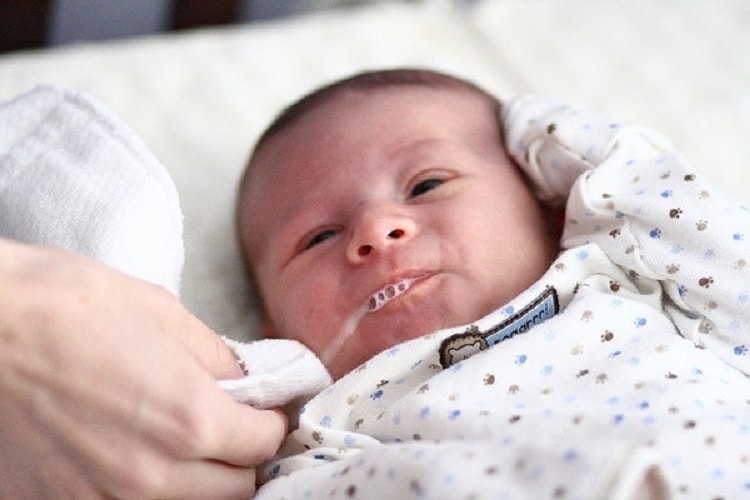 There are things you can do to help prevent or ease spitting up.
There are things you can do to help prevent or ease spitting up.
Feed your baby in an upright position. Try to feed in a calm setting so your baby isn’t anxious or distracted. If you breastfeed, burp your baby after each feeding or when you change breasts. If you bottle-feed, burp your baby every 3 to 5 minutes. Make sure the hole in the bottle’s nipple is the right size. If it’s too large, milk can come out too fast. If it’s too small, air bubbles can form.
After a feeding, let your baby’s stomach settle. Continue to hold them in an upright position for 20 to 30 minutes. Avoid laying them down or moving them around too much.
Try not to overfeed your baby. Some babies spit up less if you give them less milk at each feeding but feed them more often.
Things to consider
Spitting up is messy, but it’s normal during your baby’s early months. It rarely involves choking, coughing, or pain.
However, you should contact your doctor if you notice your baby:
- Is not gaining weight
- Spits up a large amount of milk (more than 1 or 2 tablespoons)
- Spits up or vomits forcefully
- Has fewer wet diapers than normal
- Seems very tired or sluggish
- Spits up green, red, or brown liquid
- Has a fever
- Has difficulty breathing after eating
See your doctor if your baby has any of the symptoms listed above. First, your doctor will check to see if your baby is healthy and growing well. Next, they will check to see if your baby has breathing problems. If your doctor thinks your baby is fine, nothing else needs to be done.
First, your doctor will check to see if your baby is healthy and growing well. Next, they will check to see if your baby has breathing problems. If your doctor thinks your baby is fine, nothing else needs to be done.
If your baby’s reflux is causing health problems, your doctor may prescribe medicine. This medicine is the same one used for heartburn in adults. The doctor may do other tests if your baby still doesn’t gain weight or develops other symptoms.
Questions to ask your doctor
- Is my baby’s spitting up normal or do they have a reflux problem?
- What is causing my baby to spit up and is there anything I can do to prevent it?
- Is my baby spitting up because of a reaction to something they or I ate?
- At what age can I expect my baby to stop spitting up?
- Is my baby at risk for any health problems?
Resources
National Institutes of Health, MedlinePlus: Spitting Up – Self-Care
Copyright © American Academy of Family Physicians
This information provides a general overview and may not apply to everyone.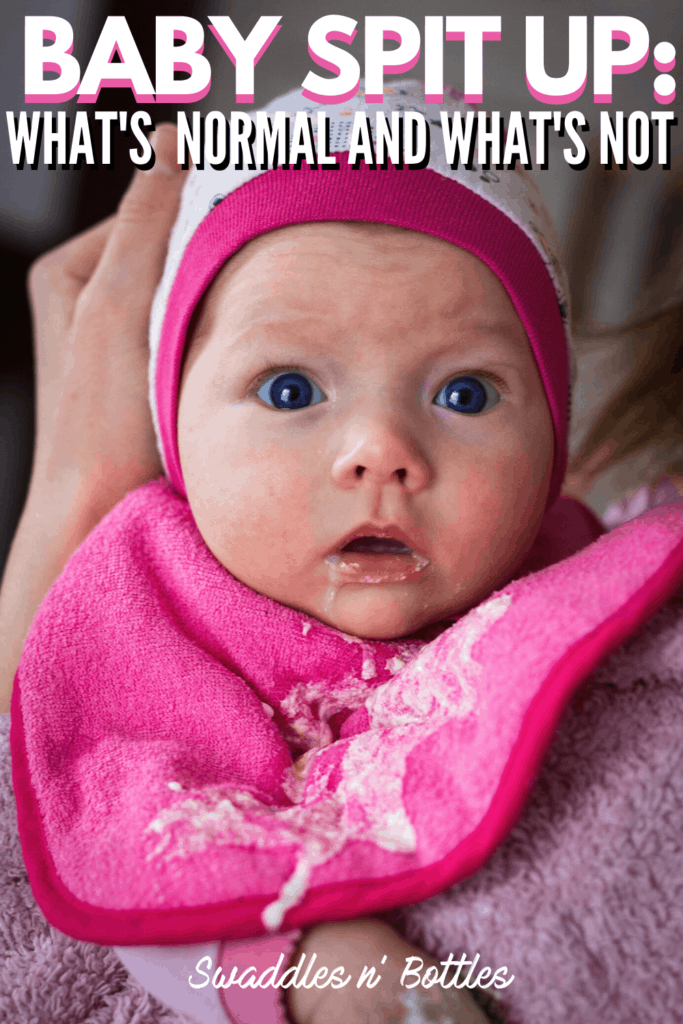 Talk to your family doctor to find out if this information applies to you and to get more information on this subject.
Talk to your family doctor to find out if this information applies to you and to get more information on this subject.
Regurgitation in newborns - when to see a doctor?
We treat children according to the principles of evidence-based medicine: we choose only those diagnostic and treatment methods that have proven their effectiveness. We will never prescribe unnecessary examinations and medicines!
Make an appointment via WhatsApp
Prices Doctors
The first children's clinic of evidence-based medicine in Moscow
No unnecessary examinations and medicines! We will prescribe only what has proven effective and will help your child.
Treatment according to world standards
We treat children with the same quality as in the best medical centers in the world.
The best team of doctors in Fantasy!
Pediatricians and subspecialists Fantasy - highly experienced doctors, members of professional societies. Doctors constantly improve their qualifications, undergo internships abroad.
Doctors constantly improve their qualifications, undergo internships abroad.
Ultimate treatment safety
We made pediatric medicine safe! All our staff work according to the most stringent international standards JCI
We have fun, like visiting best friends
Game room, cheerful animator, gifts after the reception. We try to make friends with the child and do everything to make the little patient feel comfortable with us.
You can make an appointment by calling or by filling out the form on the website
Other services of the section "Pediatric gastroenterology"
- Consultation of a pediatric gastroenterologist
Frequent calls
- Gastritis in children
- GERD (Gastroesophageal reflux disease) in children
- Duodenitis in children
- Pancreatitis in children
- Vomiting in children
- Irritable bowel syndrome in children
- Helicobacter pylori infection in children
- Hepatitis in children
- Diarrhea in children
- Constipation in a child
- Cholecystitis in children
- Cholelithiasis
- Peptic ulcer of the stomach and duodenum
- Abdominal pain in children
Online payment
Documents online
Online services
Why do newborns spit up? | Philips Avent
search support iconSearch Keywords
Home ›› Why is my baby spitting up and how can I help him?
Home ›› Why does my baby spit up and how can I help him?
↑ Top
Whether it's your first or third baby, you're bound to have questions about feeding.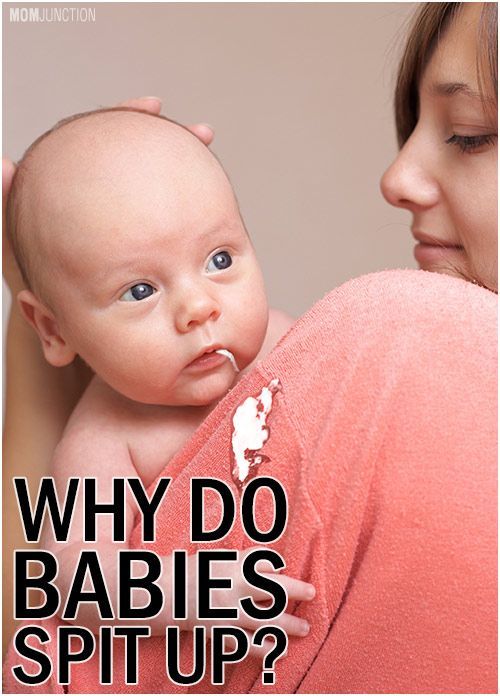 Reflux (spitting up) is a common topic among frequently discussed feeding topics, so you are not alone in finding the answer to the question “Why does my baby spit up so often?”.
Reflux (spitting up) is a common topic among frequently discussed feeding topics, so you are not alone in finding the answer to the question “Why does my baby spit up so often?”.
So why do babies spit up? And is spitting up normal for babies? You have probably thought about this many times. After reading this article, you will receive important information that will explain the causes of infant spitting up, and you will learn how to act to help the child.
If you have any questions or your child has other symptoms, be sure to contact your doctor.
Why do babies spit up and when is it normal?
Let's look at why babies spit up and answer the frequently asked question "Why does my baby spit up so much?". Many newborns spit up after feedings or when burping because their digestive tract is not yet fully developed. However, in some situations, the likelihood of regurgitation in infants increases.
So what causes reflux in babies? The following are some of the main causes of regurgitation in infants: 1
- The child has moved.

- The child was eating too fast.
- You help your baby spit up air, and with the air, the baby spit up part of the food.
- The child has too much air in the stomach.
- The child has excessive salivation.
So is spitting up normal in infants? In simple words: spitting up after some feeds, or even after each, is absolutely normal for a growing baby. However, there are points that need to be noted in order to distinguish ordinary regurgitation from vomiting. The two processes are very different, so you should check with your doctor if your baby is vomiting heavily after every or most feeds.
Also seek medical attention if your child has any of the following symptoms that a doctor can help identify: 2
- The child spit up frequently, does not gain enough height or weight.
- Judging by external signs, he is in pain, cries a lot or arches his back.
- Coughing or difficulty breathing, which may be a symptom of gastroesophageal reflux disease.

- Spits up even if he hasn't eaten anything.
- There is severe vomiting.
- Fever or diarrhea, which may be a sign of an intestinal infection and lead to dehydration.
If your baby spit up a small amount of milk after a feed and continues to grow and stay healthy, rest assured that this is normal and nothing to worry about. If you have any questions about reflux in infants, check out this article to learn about the symptoms of reflux and how to deal with it!
What to do
Now that you know that spitting up is a normal physiological process and what causes it, you are probably wondering what you can do to help your baby. Once you have consulted with your pediatrician and he has determined that spitting up is not a cause for concern, here are a few suggestions to help you when you are confused: 1
1. Regular belching of air.
In addition to burping after feedings, try helping your baby burp when changing breasts.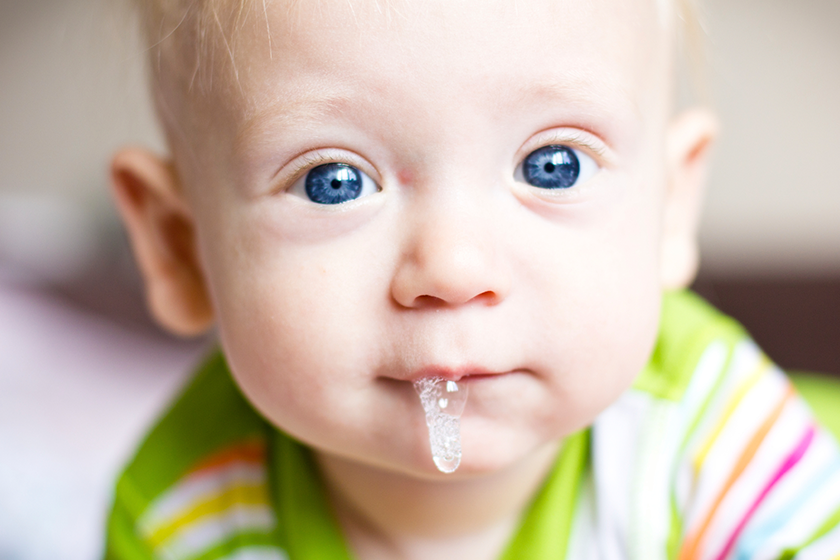 And when feeding from a bottle, try to have the child spit up air every 30-60 ml of the mixture. Consider using an anti-colic bottle with an AirFree valve. The AirFree valve prevents air from entering the nipple even when the bottle is in a horizontal position and the nipple remains completely filled with milk. The use of such a bottle will allow your baby to drink in an upright position, which will reduce the frequency of reflux, improve the digestion process and make the feeding process more comfortable for both you and the baby. Find out more about Philips Avent anti-colic bottles with AirFree valve here.
And when feeding from a bottle, try to have the child spit up air every 30-60 ml of the mixture. Consider using an anti-colic bottle with an AirFree valve. The AirFree valve prevents air from entering the nipple even when the bottle is in a horizontal position and the nipple remains completely filled with milk. The use of such a bottle will allow your baby to drink in an upright position, which will reduce the frequency of reflux, improve the digestion process and make the feeding process more comfortable for both you and the baby. Find out more about Philips Avent anti-colic bottles with AirFree valve here.
3. Avoid vigorous movement after feeding.
To avoid spitting up after a feed, it is best to refrain from any bouncing, rocking or active play until the milk has been digested better.
4. Keep your baby's head up while feeding.
When you're trying to find the right feeding position that's comfortable for both your baby and you, try to avoid a position where your baby's head is down. In other words, it is necessary to ensure that in the process of feeding the head of the child is above the level of his legs.
In other words, it is necessary to ensure that in the process of feeding the head of the child is above the level of his legs.
5. Raise the mattress at the head of the bed
It is a good idea to roll up some towels or blankets and put them under the mattress (but not on top of the mattress) in the crib. Make sure that only the headboard is raised and that there are no creases in the middle of the mattress. There should be a very slight slope from which the baby will not slip.
It's a natural process
If you ever ask yourself the question "Why is my baby spitting up?" just remember that spitting up is a completely natural, sometimes troublesome process that is part of parenthood. There are various reasons for spitting up in babies, but if your baby looks calm after a feed and is actively developing, you have nothing to worry about. In truth, spitting up is more of a problem for the parents than for the child himself, who may not even notice it.


